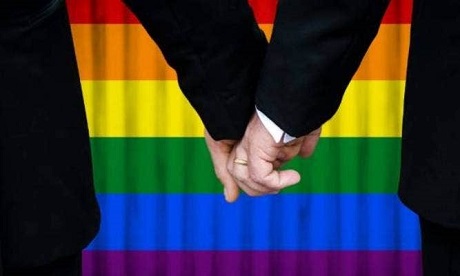A schism that developed in 2018 over same-sex marriage blessings in the NZ Anglican church is being further inflamed by what is seen as meddling from Sydney’s ultra-conservative diocese.
The Sydney diocese, which opposes same-sex marriage blessings, has indicated to the Anglican Church in Aotearoa New Zealand & Polynesia (ACANZP) that organised religion in New Zealand is over.
The schism between the NZ Anglican faithful concerns what Anglican clergy may and may not do in relation to same-sex marriages. Some say the clergy can bless same-sex marriages – while others say Anglican clergy can officiate at such marriages.
Geoff Troughton, Senior Lecturer in Religious Studies at Victoria University, says these fine distinctions matter within the Church.
“It’s a balancing act. A same-sex marriage might be conducted legally by the state, and the Church won’t conduct that rite. But it might then say you’ve contracted that legal marriage, and we’re prepared to recognise and bless it.”
Blessings give marriages religious legitimacy; religious legitimacy confers support and power.
“When [the Church] said they could bless same-sex marriages, it meant these marriages were fit and proper relationships,” says emeritus professor Peter Lineham.
“It therefore became possible to ordain gay clergy.”
Same-sex blessings will significantly change the Church’s treatment of takatāpui (LGBTQ+) communities.
The evolution for Anglicanism, and Christianity more generally is important. From being New Zealand’s biggest religion, the number of self-identified Anglicans has almost halved since 2006 to just 315,000.
A former lay preacher in the Church says of his departure: “I haven’t returned to religion since [I came out]. I’ve found a position in my own mind about… spirituality, Christianity and faith and works.”
Facing similar declines, other Christian denominations are watching the struggles in Anglicanism.
Disputes over same-sex blessings have roiled Anglicanism for years. Senior Anglicans, who gather every decade at London’s Lambeth Palace, prohibited “the legitimising or blessing of same sex unions nor ordaining those involved in same gender unions,” in 1998.
Liberal Anglicans rebelled. After the American Episcopal Church ordained a bishop in a same-sex relationship in 2003, same-sex blessings became increasingly common in North America.
Schism was not inevitable. Same-sex marriage was hotly debated in Aotearoa in 2016, with the dioceses of Nelson and Christchurch threatening schism in response to the proposals. Compromises and consultation soothed the fractiousness at that time.
It was against this background that ACANZP met in 2018 for General Synod. At this a large majority passed a rule-change to allow bishops to permit the blessing of same-sex marriages.
Few congregations were unanimous in their response to the rule change.
Churches which broke away often left substantial minorities of parishioners; churches which remained, particularly at the schism’s epicentre in Christchurch, faced exoduses.
In both cases, Anglican vicar Jay Behan says “people are walking away from buildings where they were married, where they baptised their children, or where they held funerals for loved ones.”
According to Archbishop Phillip Richardson of ACANZP, “[Those who left] were all people that I really love. And at a personal level, it hurt like hell.”
Source
Additional readingNews category: New Zealand.




